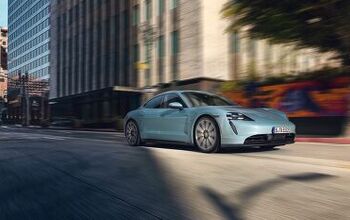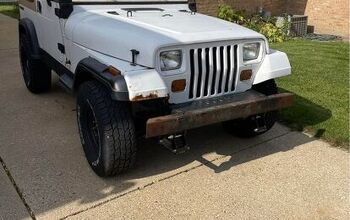"Build Them Where You Sell Them" Becomes "Sell Them Where You Build Them"
With Kia’s first US plant pumping out hot-selling new Sorentos, the Korean brand has been desperate to stake its claim to the transplant patriotism that has helped the Japanese automakers rise to dominance in the US market. In this latest ad for the new Sorento, Kia leaves the viewer with no room to doubt where the Sorento is made… and it’s already the second ad to feature Kia’s new West Point, GA factory. So, how does this all play back home in Korea? Hit the jump for the answer…
The old saying “build ’em where you sell ’em” started out as a production-planning motto, stemming from calculations about currency, production costs and shipping costs. Now, thanks to the recent politicization of the car industry, a transplant factory is nothing short of a brilliant marketing tool. In the mass market, where foreign-ness doesn’t hold the cachet it does in the luxury space, the fact that a brand employs Americans can not be ignored. After all, if Ford’s recent momentum can be attributed to its not receiving a bailout, auto brands must remain mindful of their macroeconomic impacts. The more brands like Kia tout their American-ness, the less justification import buyers have for going back to Detroit.
More by Edward Niedermeyer
Latest Car Reviews
Read moreLatest Product Reviews
Read moreRecent Comments
- Ltcmgm78 Just what we need to do: add more EVs that require a charging station! We own a Volt. We charge at home. We bought the Volt off-lease. We're retired and can do all our daily errands without burning any gasoline. For us this works, but we no longer have a work commute.
- Michael S6 Given the choice between the Hornet R/T and the Alfa, I'd pick an Uber.
- Michael S6 Nissan seems to be doing well at the low end of the market with their small cars and cuv. Competitiveness evaporates as you move up to larger size cars and suvs.
- Cprescott As long as they infest their products with CVT's, there is no reason to buy their products. Nissan's execution of CVT's is lackluster on a good day - not dependable and bad in experience of use. The brand has become like Mitsubishi - will sell to anyone with a pulse to get financed.
- Lorenzo I'd like to believe, I want to believe, having had good FoMoCo vehicles - my aunt's old 1956 Fairlane, 1963 Falcon, 1968 Montego - but if Jim Farley is saying it, I can't believe it. It's been said that he goes with whatever the last person he talked to suggested. That's not the kind of guy you want running a $180 billion dollar company.

































Comments
Join the conversation
My Ohio built Honda Accord has been top notch in terms of quality. When it was new and competing with the likes of the old Ford Taurus, it was far superior to the then Atlanta/Chicago built Taurus not because of where it was built, but the design and engineering of the final product. I don't think a Japanese assembly man is any better than one in the US or Europe or anywhere. Quality starts with engineering/design and ends with the management at the assembly plants. Anyone can install a dashboard. It just needs to be well engineered and management needs to supervise and make sure it's installed correctly. One thing I will note is that old equipment can lead to sub-par final products. Tolerances will go out over time, etc. That said, a brand spanking new factory/equipment probably does have an advantage there.
I think there is a cultural difference. The Japanese, culturally, hold themselves to a higher sense of personal honor than many Americans do. That's why crime rates and such are so low in Japan vs. the US. Give a Japanese person a repetitive, monotonous job such as opening and closing the car doors to test for proper fit, 12 hours a day, and they are likely to channel a lot of concentration and energy into doing exactly that. Your union American worker is probably quite good at the same task nowadays, but more likely to be counting down the minutes to their next break--and it's hard to blame them. Repeat this scenario over millions of assembly routines and cars built and the total sum equates to Japanese cars being assembled to higher tolerances. My personal opinion is that they are the best in the world at that. That said...it doesn't mean a better car in the end. The car may lack in design, may lack in driving feel, may lack in interior space/packaging, or may lack in character. Reliability in the design may lack, also. But the assembly will likely be excellent. My Mazda is a perfect example of this (great assembly, not great reliability, character or packaging).